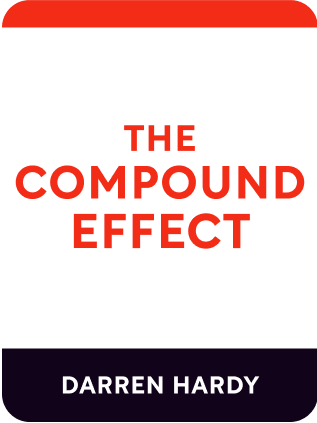

This article is an excerpt from the Shortform book guide to "The Compound Effect" by Darren Hardy. Shortform has the world's best summaries and analyses of books you should be reading.
Like this article? Sign up for a free trial here .
What is the meaning of compound effect? How can applying the compound effect principle help you turn small behaviors into big achievements?
The compound effect meaning is exactly what it sounds like. Specifically, it refers to how making small behavior changes can compound into life-changing results over time.
Read on for the compound effect meaning and application.
What Is the Meaning of Compound Effect?
The key to success in anything in life is harnessing the power of the Compound Effect, which means the effects of small, everyday choices will compound over time, leading you to success—or disaster, depending on your choices.
As a student of success and a leader in the personal development industry, author Darren Hardy has tested thousands of different philosophies and came to realize that whatever success strategy you employ doesn’t matter—it all comes down to the Compound Effect.
Small Changes, Big Results
As you may know from finance, compound interest can lead to surprisingly large returns. A penny that doubles in value each day for 31 days ends up being worth over $10 million.
Similarly, in our personal life, small changes maintained consistently over time lead to unexpectedly dramatic results. Eating 100 fewer calories per day for an entire year would cause you to lose 10 pounds. Spending 30 minutes reading each day could, over a year, lead to dramatic self-improvement and new ideas.
Importantly, changes in one area of life can compound with other areas, what Hardy calls “the ripple effect.” For example, eating slightly more healthily might lead to feeling more energetic, which promotes a little more exercise, which improves your mood and relationships. One small change can lead to a host of other benefits, which together form a snowball of dramatic personal change.
The Compound Effect also works in reverse – one small bad habit leads to a large problem over time. And that small habit can ripple into other areas, leading to a giant snowball of bad problems. For example, eating a little too much each day could cause surprisingly large weight gain, which leads to loss of self-esteem, which leads to less energy and worsened relationships, and so on.
The idea of small changes compounding over time can be contrasted with big, sudden changes. When people try to start exercising, they often declare a big goal and start with extreme changes like going to the gym daily. But this is often unsustainable – once you miss a few appointments, you get discouraged and end the whole effort. In contrast, small changes build consistency and momentum – they form new habits that you can maintain for decades.
The compound effect meaning is simple, but simple doesn’t mean easy. Each chapter in this book explores a fundamental tenet of the Compound Effect that will help you generate new behaviors and habits to propel you toward success.

———End of Preview———
Like what you just read? Read the rest of the world's best book summary and analysis of Darren Hardy's "The Compound Effect" at Shortform .
Here's what you'll find in our full The Compound Effect summary :
- How small, daily actions can add up to big successes (or failures)
- Why it's easier to rely on the compound effect over time instead of taking big action all at once
- How it's possible to be better off starting with a penny than $3 million






